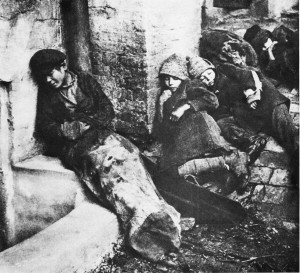I.
On the 27th of July, in the year 1878, the little town of Talutorovsk, in Western Siberia, was profoundly excited by a painful event. A political prisoner, named Olga Litibatovitch, miserably put an end to her days. She was universally loved and esteemed, and her violent death therefore produced a most mournful impression throughout the town, and the Ispravnik, or chief of the police, was secretly accused of having driven the poor young girl, by his unjust persecutions, to take away her life.
Olga was sent to Talutorovsk some months after the trial known as that of the ‘fifty’ of Moscow, in which she was condemned to nine years’ hand labor for Socialist propagandism, a punishment afterwards commuted into banishment for life. Unprovided with any means whatever of existence, for her father, a poor engineer with a large family, could send her nothing, Olga succeeded, by indefatigable industry, in establishing her self in a certain Position. Although but little skilled in female labor, she endeavored to live by her needle, and became the milliner of the semi-civilized ladies of the town, who went into raptures over her work. These fair dames were firmly convinced — it is impossible to know why — that the elegance of a dress depends above all things upon the number of its pockets. The more pockets there were, the more fashionable the dress. Olga never displayed the slightest disinclination to satisfy this singular taste. She put pockets upon pockets, upon the body, upon the skirts, upon the underskirts; before, behind, everywhere. The married ladies and the young girls were as proud as peacocks, and were convinced that they were dressed like the most fashionable Parisian, and, though they were less profuse with their money than with their praises, yet in that country, where living costs so little, it was easy to make two ends meet. Later on, Olga had an occupation more congenial to her habits. Before entering the manufactories and workshops as a seamstress in order to carry on the Socialist propaganda, she had studied medicine for some years at Zurich, and she could not now do less than lend her assistance in certain cases of illness.
Continue reading A Female Nihilist: The true story of the nihilist Olga Liubatovitch by Sergei Stepniak









